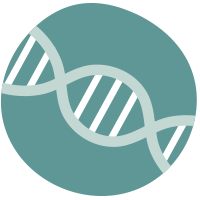
Cell Therapy News
Cell Therapy News is an online resource dedicated to sharing the latest cell therapy, gene therapy, and regenerative medicine research.
CAR Affinity Modulates the Sensitivity of CAR-T Cells to PD-1/PD-L1-Mediated Inhibition
[Nature Communications] The authors interrogated CAR-T cells targeting HER2 with either low or high affinity in various preclinical models.
UCSF Launches Clinical Trial on New CAR T Therapy for Glioblastoma
[Insider Precision Medicine] Researchers at the University of California, San Francisco (UCSF) have begun enrollment for a clinical trial that uses a new, powerful version of CAR T as a potential therapy for glioblastoma, the most common and deadly adult brain cancer.
Design of a Stem Cell–Based Therapy for Ependymal Repair in Hydrocephalus Associated with Germinal Matrix Hemorrhages
[Stroke] Investigators explored the possibilities of ependymal repair in GMH/PHH using a combination of neural stem cells, ependymal progenitors, and mesenchymal stem cells.
Nonlinear Elastic Bottlebrush Polymer Hydrogels Modulate Actomyosin Mediated Protrusion Formation in Mesenchymal Stromal Cells
[Advanced Materials] Bottlebrush polymers were synthesized and crosslinked to form poly(ethylene glycol)-based hydrogels and used to study how strain-stiffening behavior affects human MSCs.
Single-Cell Sequencing Reveals VEGFR as a Potential Target for CAR-T Cell Therapy in Chordoma
[Journal Of Orthopaedic Translation] 14 chordoma samples from patients attending Xuanwu Hospital Capital Medical University were subjected to single-cell RNA sequencing. Target molecules were identified on chordoma cells and cancer metastasis-related signaling pathways characterised.
French-Canadian Gets ‘Oscars Of Science’ Prize For Cancer Treatment
[Barron's] French-Canadian scientist Michel Sadelain was awarded an "Oscars of Science" prize in Los Angeles for his research into genetically modifying immune cells to fight cancer.
Self-Adjuvanting Polymeric Nanovaccines Enhance IFN Production and Cytotoxic T Cell Response
[Journal Of Controlled Release] The authors reported a novel subunit vaccine delivery platform constructed via in situ free radical polymerization of C7A (2-(Hexamethyleneimino) ethyl methacrylate) and acrylamide around the surface of individual protein antigens.
Role of FoxP3+ Regulatory T Cells in Modulating Immune Responses to Adeno-Associated Virus Gene Therapy
[Human Gene Therapy] Regulatory T cells are crucial for maintaining tolerance against self or nonself antigens. Of importance, Tregs also play an important role in dampening immune responses to AAV gene therapy, including tolerance induction to the transgene product.
From Spear to Trident: Upgrading Arsenal of CAR-T Cells in the Treatment of Multiple Myeloma.
[Heliyon] The authors provide an overview of the new advances of CAR-T cells in the cure of multiple myeloma (MM), so in this review we looked at the progress of the clinical use of CAR-T cells in MM to try to provide a reference for their clinical use when managing MM.
A Novel Engineered IL-21 Receptor Arms T-Cell Receptor-Engineered T Cells (TCR-T Cells) Against Hepatocellular Carcinoma
[Signal Transduction And Targeted Therapy] Researchers determined the combination effects of IL-21 in T cell therapy against HCC and investigate optimized strategies to utilize the effect of IL-21 signal in T cell therapy.
USP8-Governed GPX4 Homeostasis Orchestrates Ferroptosis and Cancer Immunotherapy
[Proceedings Of The National Academy Of Sciences Of The United States Of America] Investigators reported that homozygous deletion of ubiquitin-specific protease 8 (Usp8) in intestinal epithelial cells (IEC) led to architectural changes in the colonic epithelium and shortens mouse lifespan accompanied by increased IEC death and signs of lipid peroxidation.
Bispecific CAR T Cell Therapy Targeting BCMA and CD19 in Relapsed/Refractory Multiple Myeloma: A Phase I/II Trial
[Nature Communications] Scientists designed bispecific BC19 CAR T cells targeting BCMA/CD19 and evaluated antimyeloma activity in vitro and in vivo. Preclinical results indicated that BC19 CAR specifically recognized target antigens, and BC19 CAR T cells mediate selective killing of BCMA or CD19-positive cancer cells.
Published since 2002, Cell Therapy News is our longest running online publication. Our editorial team curates the top publications, reviews, and news on in vivo gene therapy, cell therapy, and immunotherapy research. With over 15,000 subscribers and followers across our website, email newsletter, and Twitter feed, we are proud to facilitate the communication of cutting-edge cell therapy innovations.

 Cancer Stem Cell News
Cancer Stem Cell News Cell Therapy News
Cell Therapy News Dermal Cell News
Dermal Cell News Endothelial Cell News
Endothelial Cell News ESC & iPSC News
ESC & iPSC News Extracellular Matrix News
Extracellular Matrix News Hematopoiesis News
Hematopoiesis News Hepatic Cell News
Hepatic Cell News Human Immunology News
Human Immunology News Immune Regulation News
Immune Regulation News
 Intestinal Cell News
Intestinal Cell News Mammary Cell News
Mammary Cell News Mesenchymal Cell News
Mesenchymal Cell News Muscle Cell News
Muscle Cell News Neural Cell News
Neural Cell News Organoid News
Organoid News Pancreatic Cell News
Pancreatic Cell News Prostate Cell News
Prostate Cell News Pulmonary Cell News
Pulmonary Cell News
